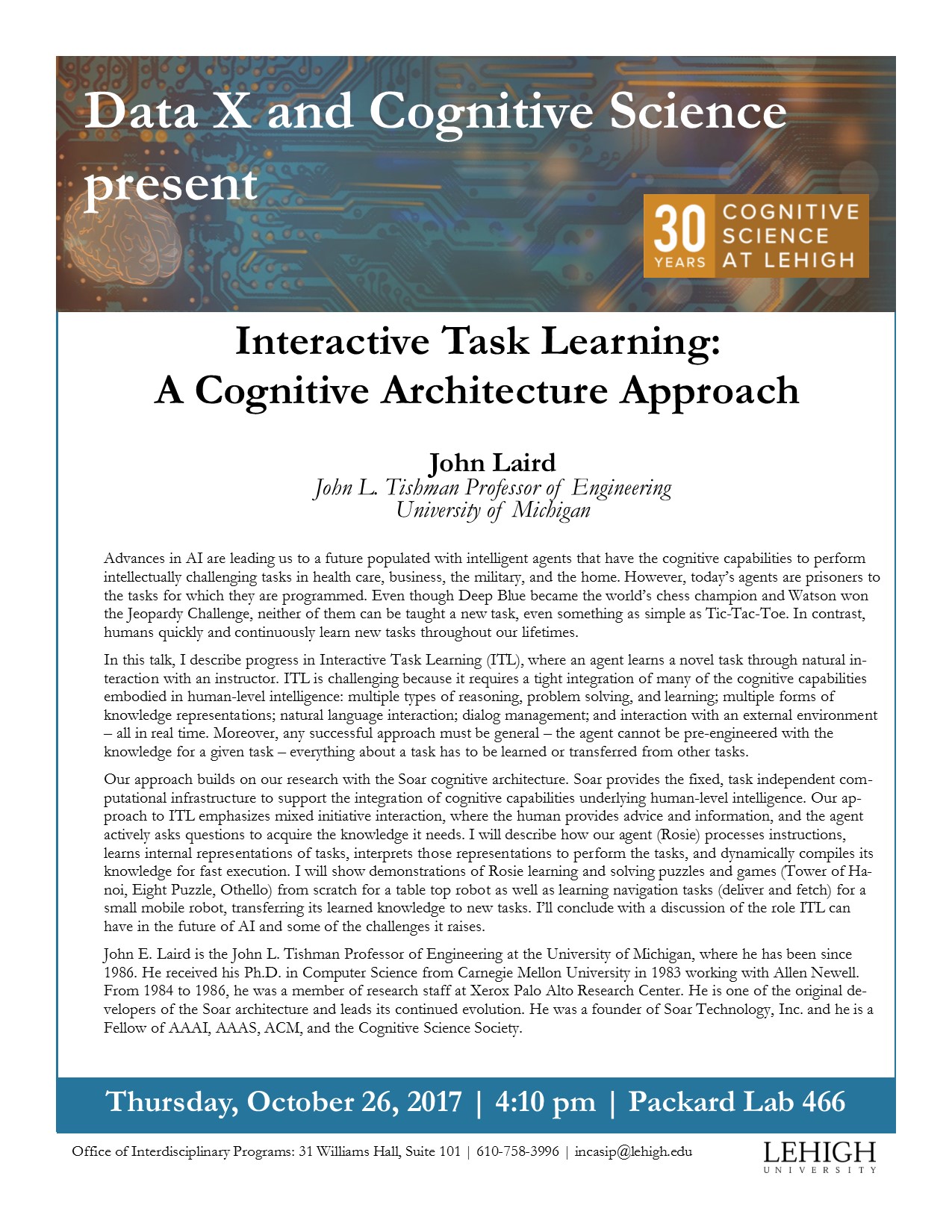Thursday, October 26, 2017 - 4:10pm
Place:
Packard Lab 466
Co-sponsers:
DATA X
John Laird
John L. Tishman Professor of Engineering
University of Michigan
Advances in AI are leading us to a future populated with intelligent agents that have the cognitive capabilities to perform intellectually challenging tasks in health care, business, the military, and the home. However, today’s agents are prisoners to the tasks for which they are programmed. Even though Deep Blue became the world’s chess champion and Watson won the Jeopardy Challenge, neither of them can be taught a new task, even something as simple as Tic-Tac-Toe. In contrast, humans quickly and continuously learn new tasks throughout our lifetimes.
In this talk, I describe progress in Interactive Task Learning (ITL), where an agent learns a novel task through natural interaction with an instructor. ITL is challenging because it requires a tight integration of many of the cognitive capabilities embodied in human-level intelligence: multiple types of reasoning, problem solving, and learning; multiple forms of knowledge representations; natural language interaction; dialog management; and interaction with an external environment – all in real time. Moreover, any successful approach must be general – the agent cannot be pre-engineered with the knowledge for a given task – everything about a task has to be learned or transferred from other tasks.
Our approach builds on our research with the Soar cognitive architecture. Soar provides the fixed, task independent computational infrastructure to support the integration of cognitive capabilities underlying human-level intelligence. Our approach to ITL emphasizes mixed initiative interaction, where the human provides advice and information, and the agent actively asks questions to acquire the knowledge it needs. I will describe how our agent (Rosie) processes instructions, learns internal representations of tasks, interprets those representations to perform the tasks, and dynamically compiles its knowledge for fast execution. I will show demonstrations of Rosie learning and solving puzzles and games (Tower of Hanoi, Eight Puzzle, Othello) from scratch for a table top robot as well as learning navigation tasks (deliver and fetch) for a small mobile robot, transferring its learned knowledge to new tasks. I’ll conclude with a discussion of the role ITL can have in the future of AI and some of the challenges it raises.
John E. Laird is the John L. Tishman Professor of Engineering at the University of Michigan, where he has been since 1986. He received his Ph.D. in Computer Science from Carnegie Mellon University in 1983 working with Allen Newell. From 1984 to 1986, he was a member of research staff at Xerox Palo Alto Research Center. He is one of the original developers of the Soar architecture and leads its continued evolution. He was a founder of Soar Technology, Inc. and he is a Fellow of AAAI, AAAS, ACM, and the Cognitive Science Society.

